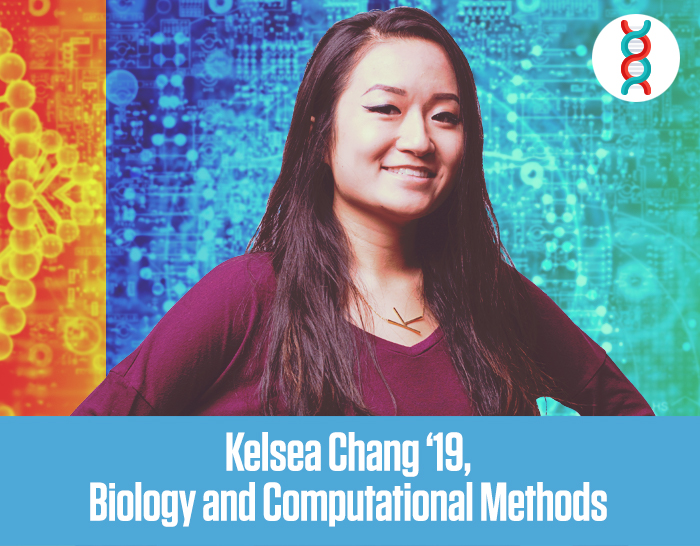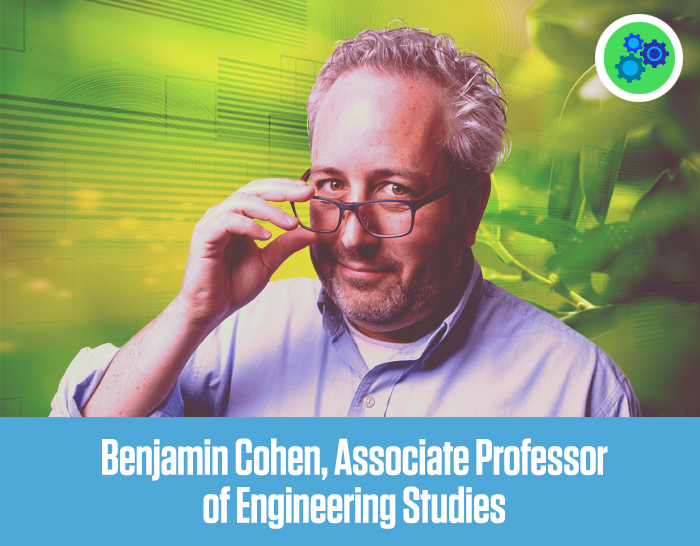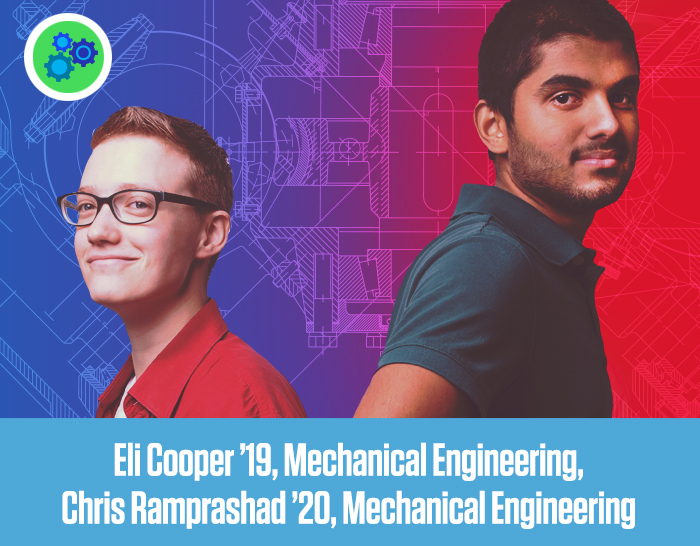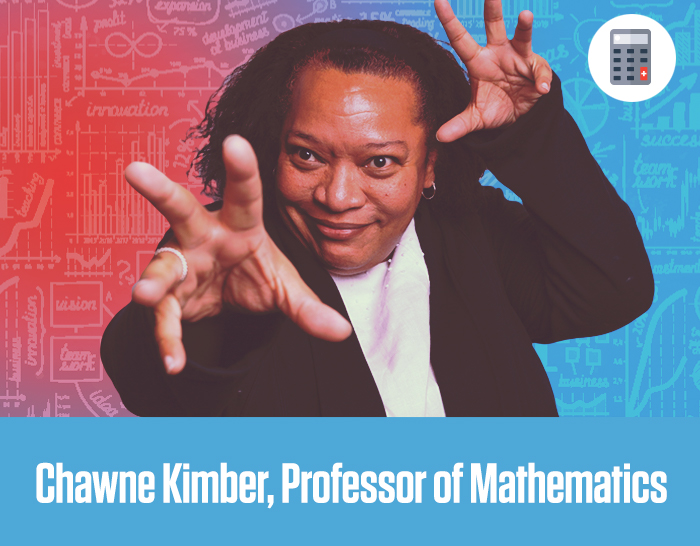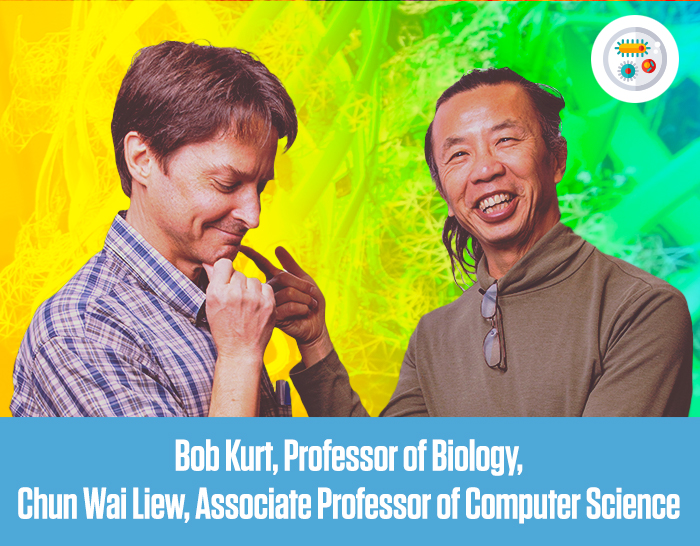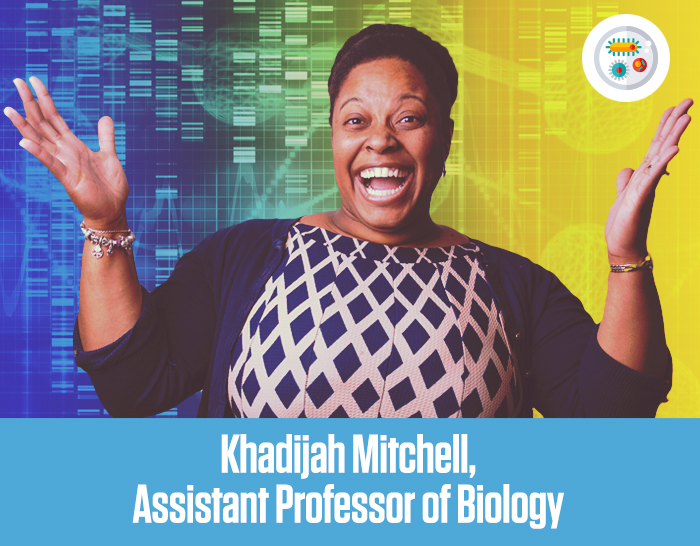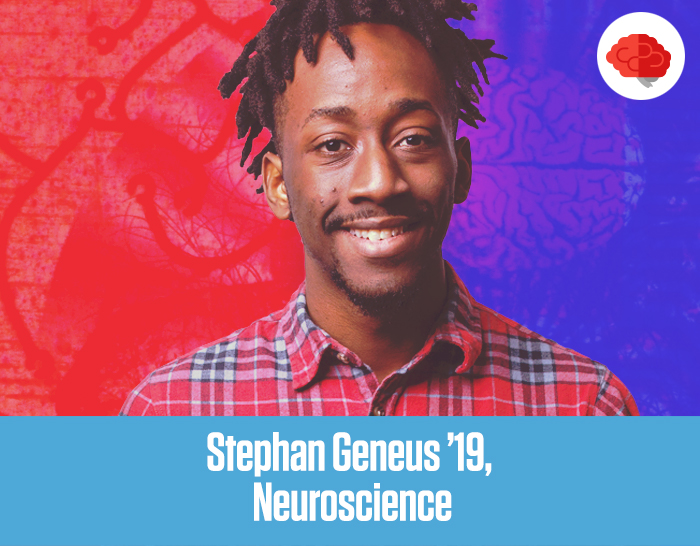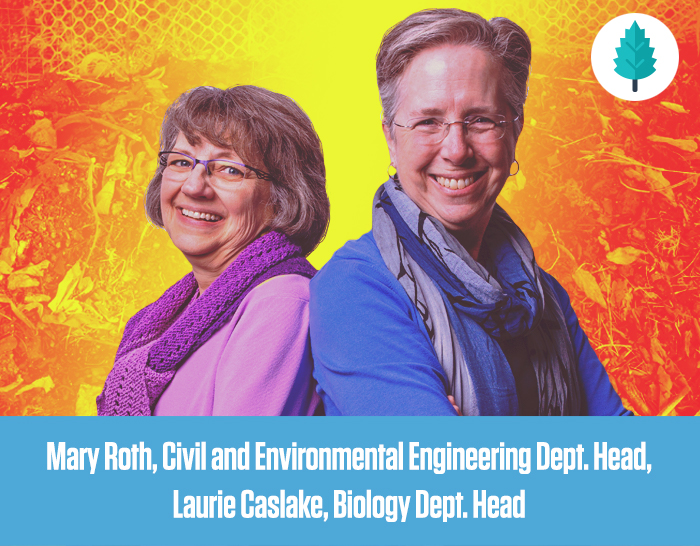Deciphering Genetic Puzzles
The genetic testing company 23andMe can reveal details about your ancestry, genealogy, and if you have an increased genetic risk of developing certain diseases. The consumer test does not reveal information about stroke risk. The research Kelsea Chang ’19 is doing with her adviser, Eric Ho, assistant professor of biology, could one day change that.
Chang is combining her lifelong love for biology with her newly acquired computer science skills to uncover genetic variations that can predict someone’s risk of suffering a stroke. She started the project as a summer EXCEL Scholar, and she’s continuing her research for her senior honors thesis. The genetic link to stroke could be of particular value to those seeking to understand why young people suffer from strokes. Older victims tend to have health-related risk factors, like diabetes and cardiovascular disease. It’s possibly more likely that younger people are genetically predisposed.
Chang, a biology major and computational methods minor, is “web scraping” to compile genetic data for analysis. “A lot of unstructured information is out there in websites, but it goes unutilized,” she says. “There much potential if you can pull the relevant information and store it in a way that can be easily accessed for research.” It’s work that Chang initially didn’t think she was cut out for. “I always thought I wouldn’t be good at computer science,” she says. “I was intimidated by it. But I tried a class, and it just clicked for me. I found it so intellectually stimulating. Now I plan to incorporate coding and biology into what I do in the future. I could see myself doing something in health care. The idea of helping people and contributing to new advances in medicine appeals to me.”
